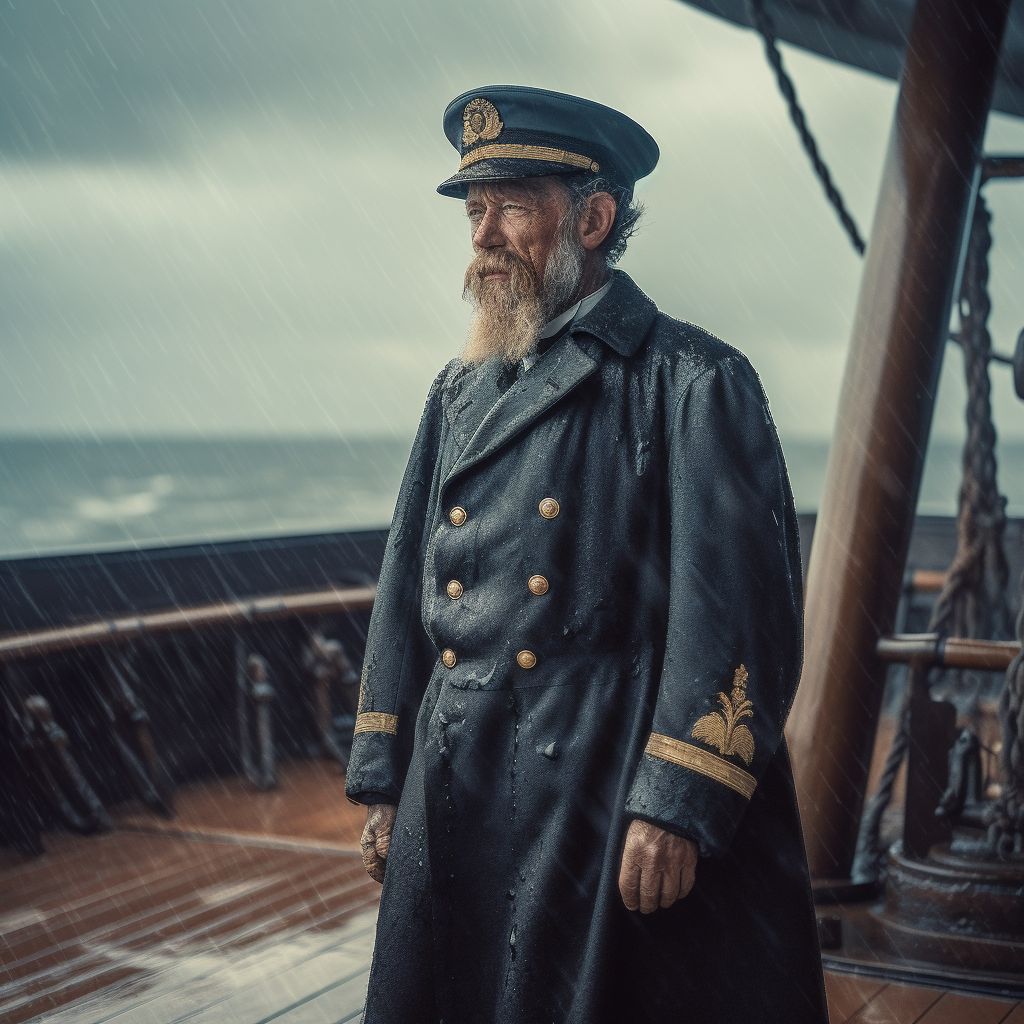Ship's Captain
In the latter half of the 19th century, the ship captain profession has remained a vital component of global trade and commerce, facilitating the transport of goods and people across vast oceans. Ship captains are skilled navigators, responsible for the safe and efficient operation of their vessels. With the development of auto sapient automatons in the 1870s by companies like Morgan's Mechanicals and Morgan's Automatons, the maritime industry has experienced a wave of technological innovation that has altered the traditional role of ship captains.
Responsibilities of Ship Captains
Ship captains hold the ultimate authority on board their vessels, overseeing all aspects of the ship's operations. They are responsible for the safety and well-being of their crew, as well as the passengers and cargo they carry. Their duties include navigating the ship, managing the crew, maintaining the vessel, and ensuring compliance with maritime laws and regulations.
In addition to their technical skills, ship captains must also possess strong leadership qualities, as they are required to make critical decisions in high-pressure situations. Their ability to maintain discipline, communicate effectively, and adapt to changing circumstances is crucial for the success of their missions.
Impact of Auto Sapient Automatons on the Profession
The introduction of auto sapient automatons to the maritime industry has brought significant changes to the ship captain profession. These advanced machines are capable of performing a wide range of tasks, from navigation and maintenance to cargo handling and communications. As a result, ship captains have been able to delegate certain responsibilities to automatons, allowing them to focus on more strategic aspects of their role.
The use of automatons has also enhanced safety and efficiency on board ships. Auto sapient automatons can monitor the vessel's systems around the clock, detecting and addressing potential issues before they escalate. Additionally, their advanced navigation capabilities have reduced the risk of accidents and delays, enabling ships to travel more quickly and reliably.
Challenges and Adaptation
Despite the many benefits that auto sapient automatons bring to the maritime industry, their integration into the ship captain profession has not been without challenges. The high cost of these machines has limited their adoption, particularly among smaller shipping companies. Additionally, there are concerns that the widespread use of automatons may lead to a decline in traditional maritime skills and a reduced need for Human labor in the industry.
In response to these challenges, ship captains have sought to strike a balance between embracing new technology and preserving the essential qualities that define their profession. Many have chosen to integrate automatons into their operations while continuing to rely on their own expertise and that of their crew. This approach allows them to leverage the benefits of automation while ensuring that the human element remains at the heart of their profession.
Conclusion
The ship captain profession has long been a pillar of global trade and exploration, guiding vessels across the vast expanse of the world's oceans. The advent of auto sapient automatons has brought about significant changes to the industry, offering new opportunities for efficiency and safety while also presenting challenges to traditional practices. As ship captains navigate the seas of progress, they must adapt to this new reality, harnessing the power of automation while preserving the human touch that has always been central to their role.
Type
Transportation


